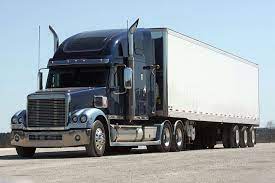By Clint Thompson
The current truck driver shortage that is plaguing the U.S. may not be rectified without help at the federal level. That’s the feeling shared by Tra Williams, owner and president of Fleetforce Truck Driving School in Winter Haven, Florida.
With as many truck drivers that retire every week, there’s considerably less that are applying to take their place. A potential remedy would be reducing the age of eligible interstate drivers to 18.
“I am of the opinion that if you can die for this country, you’re old enough to drive over its interstates. I understand people’s apprehension about that based on driving records of your average 16 or 17-year-old boy. But the industry does a really good job of vetting people on the way in,” Williams said. “Every carrier I know has a very strong finishing program. That would really help them take their training to the next level after they receive their CDL.”
Insurance Hurdle
But lowering the age of interstate driving to 18 won’t have an impact if companies can’t insure them. That’s another hurdle.

“Right now, insurance carriers are telling most trucking companies, you can’t hire a driver unless he has at least two years of experience. How are they supposed to get experience? Where are they supposed to go to get experience if you can’t hire them unless they have two years? The insurance industry is holding the trucking industry hostage on this,” Williams said.
“It makes no sense because if you look at the data, entry-level drivers are actually not responsible for the majority of accidents. The majority of accidents happen somewhere around four or five or six years in, right around the point you get really comfortable and real complacent.
“Statistically speaking, you should be more wary of a driver who has four or five or six years of experience without having an accident than you should with an entry-level driver. But that’s not what the insurance companies are doing. That’s a hurdle that’s going to have to be overcome at the federal level.”
The lack of truck drivers is a major problem that is only going to worsen. At least 1,200 truck drivers retire every week, which equates to 5,000 per month and 60,000 per year. There is a shortage of between 80,000 and 100,000 truck drivers, which will only increase over the next decade. The problem is causing disruptions and major increases in freight expenses for vegetable and specialty producers trying to ship their crops.









